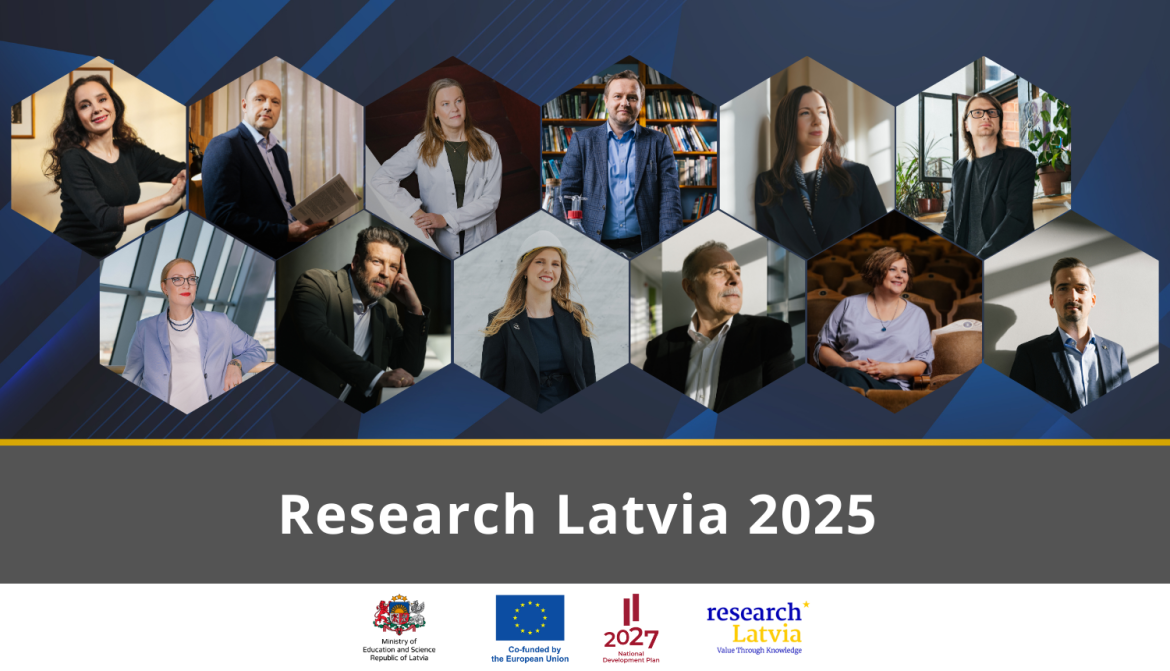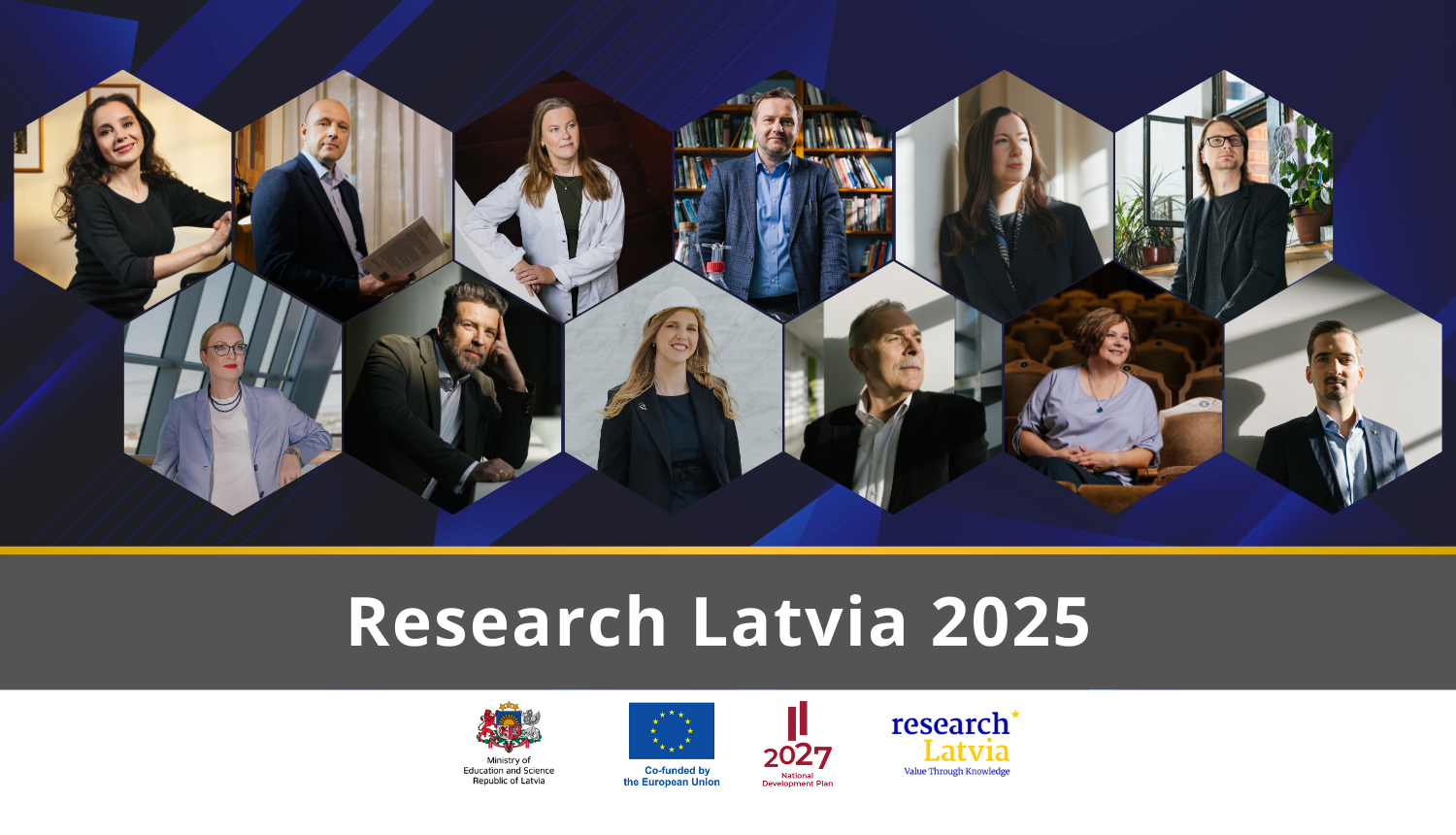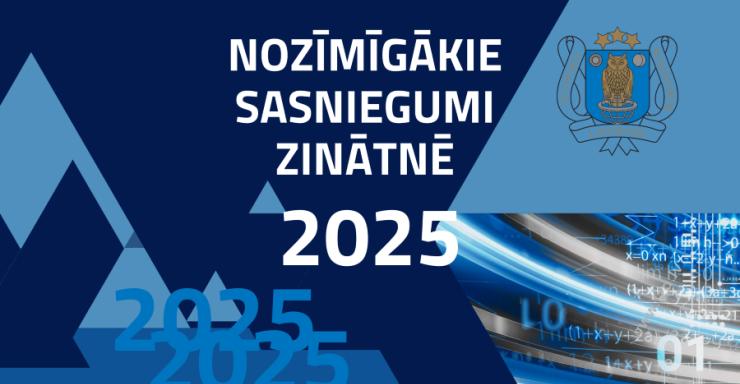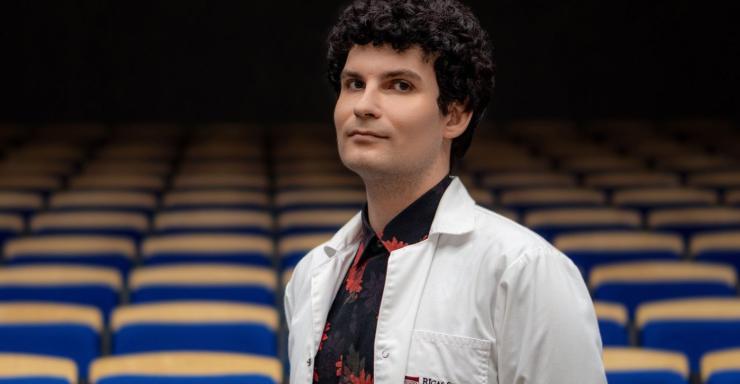The Ministry of Education and Science will officially unveil its newly created calendar "Research Latvia 2025". As a significant science communication tool, for the 8th time this calendar will bring together 12 Latvian researchers, who through their achievements promote the international recognition of national science. Alongside the calendar launch, a traveling exhibition will also be opened to further popularize Latvia’s science to a wider audience.
Complementing each other, the “Research Latvia 2025” calendar unites 12 of Latvia’s leading scientific institutions. Their outstanding research accomplishments underscore the country's significant role in both the European Research Area and the global scientific arena. The 12 featured personalities - six female and six male researchers - make unique contributions to the development of interdisciplinary national and international-level science centers.
This interactive science calendar is available in both digital and traditional formats, providing an accessible way for the public to learn about and be inspired by Latvian scientists.
The "Research Latvia 2025" calendar highlights the following institutions and researchers –
- four science universities: Dr. phil. Raivis Bičevskis (University of Latvia), Dr. sc. ing. Sergejs Gaidukovs (Riga Technical University), Dr. biol. Renāte Ranka (Riga Stradiņš University) and Ph. D. Rūta Ozola-Davidāne (Latvia University of Life Sciences and Technologies);
- three academies of arts and culture: Dr. art. Diāna Zandberga (Jāzeps Vītols Latvian Academy of Music), Art. D. Ansis Rozentāls (Latvian Academy of Arts) and Ph. D. Baiba Tjarve (Latvian Academy of Culture);
- three higher education institutions of applied sciences: Dr. sc. pol. Toms Rostoks (National Defence Academy of Latvia), Mg. sc. comp. Karina Šķirmante (Ventspils University of Applied Sciences) and Ph. D. Oskars Java (Vidzeme University of Applied Sciences);
- an university of applied sciences Dr. biol. Artūrs Škute (Daugavpils University);
- a symbolic knowledge and cultural hub represents Mg. art., Mg. soc. Dagnija Baltiņa (National Library of Latvia).
At the “Research Latvia 2025” launch event, for the first time, the 12 featured scientific institutions will receive the Member of researchLatvia recognition, thus confirming their significant role in the development of Latvia's research.
Simultaneously, the traveling exhibition “Research Latvia 2025” will open at the Jāzeps Vītols Latvian Academy of Music and be available for viewing until January 29, 2025. Throughout the year, it will be showcased at higher education institutions and other public and cultural venues across Latvia. By scanning QR codes, visitors can watch 12 video stories featuring the researchers.
May the National Library of Latvia, along with Latvia’s universities of science, arts, culture, and applied sciences, continue to inspire us all to explore, create, and grow!

The science calendar was developed as part of the project No. 1.1.1.1/1/24/I/001 “More Effective and Smarter Implementation and Management of Latvian Science Policy”. Contributors include the creative team of SIA “Entuziasti Digital”, Mārtiņš Pavasaris, video director Kristaps Mozgirs, and photographer Mārtiņš Goldbergs.


